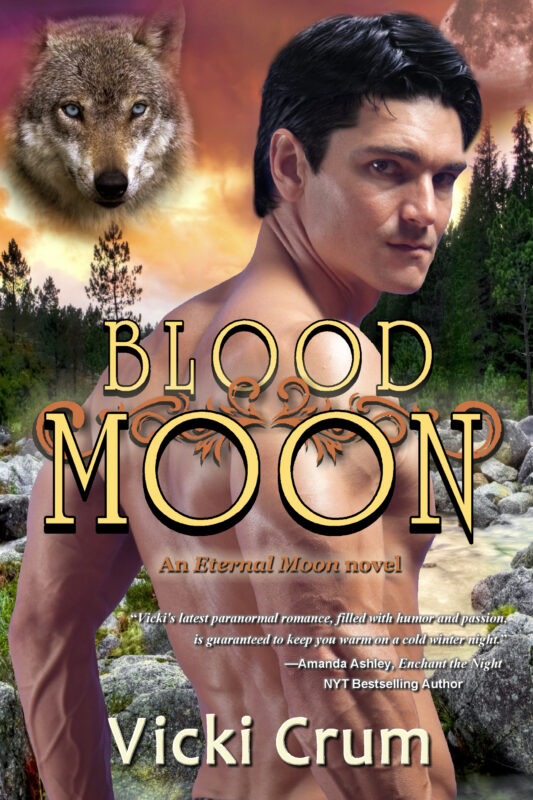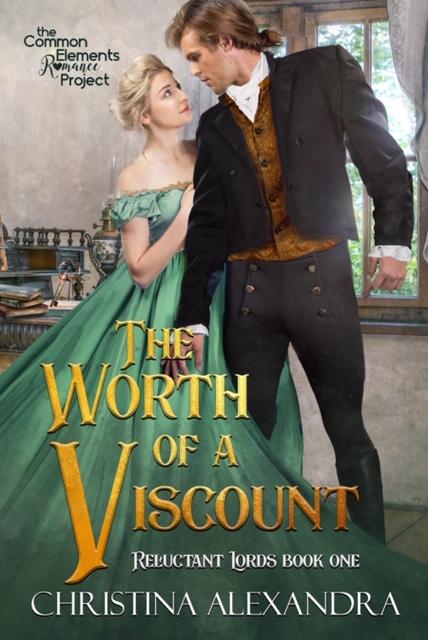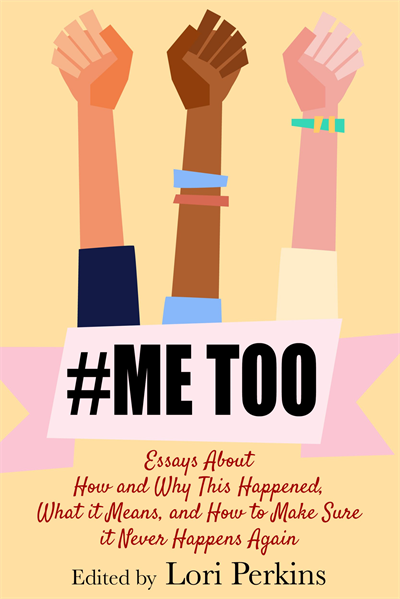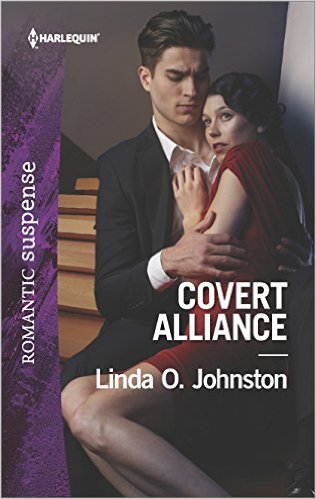Heck Yeah! Lawyers are so Appealing
September 15, 2011 by Rebecca Forster in category The Write Life by Rebecca Forster tagged as Adventures in Writing, characterization, courtroom drama, Craft, lawyers, legal fictionIf you are a lawyer, a judge, a clerk, a bailiff, I love you. Really, I do. And so do millions of fiction readers. They can’t get enough of you, in and out of the courtroom. In my book* you are exciting, intelligent, mysterious, courageous, resourceful, thoughtful, witty, well-spoken and you are heroic. Of course, there are times when you are vicious, deceitful, brilliantly cold and cruel and that is pretty nifty, too.
I am married to a judge (he’s pretty sedate) but he was once a lawyer and that is how my fascination with you all began. Yet, years of trial watching, staff chatting and transcript reading has created a bizarre obsessive/compulsive need to figure you all out. Since I haven’t been able to, I can at least explain why you are irresistibly inspiring to this novelist and fascinating to those who love to read about you.
1) You speak legalese. It is like French: mysterious, irresistible, intimidating. Throw in a little Latin – a quid pro quo or prima facia – and you can melt a woman’s resolve and strike fear into the hearts of mortal men.
2) You are confident. Is there a super- secret-double-indemnity-swear-on-your-mother’s-grave-and-never-tell class that teaches you how to argue any and every point of view with grace and conviction? **
3) Bad guys listen to you. They even pay you to tell them what to do. That makes you a little edgy by association and who doesn’t like a bad boy -or girl?
4) You’re altruistic, defending bad people because you believe everyone deserves a defense.
5) You’re altruistic, prosecuting bad guys because you believe in justice.***
6) You are eye-candy. From the couture clad divorce-attorney-to-the stars, to the public defender sporting a plaid jacket and pony tail and the plaintiff’s lawyer in that Italian suit you turn courthouse hallways into runway.
7) You are funny. Sometimes you mean to be funny. Either way, a funny attorney is charming.
8) You are excellent secret keepers, which is not to be confused with being trustworthy. Though I believe you are trustworthy, that is a point of debate.
9) You are curious and tenacious.
10) You are heroes and not just in the literary sense. In real life you (and your expertise) are often the only things standing between a person losing something important to them: their children, their fortune, their reputation, their freedom and, yes, their life.****
*Actually, in all my books since I write legal thrillers.
**This also means that your significant other, children or parent can never win an argument. Experience tells me, the only recourse a normal person has when arguing with a lawyer is to cry and proclaim: “You are right, you are always right.” Works for me.
***A characteristic that make you the perfect inspiration for novels and films.
****You have my permission to show this list to anyone who questions your lovability, capability or worth. You may also use the aforementioned in advertising, closing arguments, opening statements and speed dating.
Dialogue Tags: How To Kill Off Some Of The Little Buggers
April 10, 2011 by A Slice of Orange in category Archives tagged as Craft, Sharla Rae, writingInstead of: “Stop it!” James said. [He could be angry but then again he could be laughing hard and telling someone to stop it. But if we say: James said, angrily, we’re telling.]
- Try: James sliced the air with his hand. “Stop it!”
- Try: “Stop it!” James held his sides, laughing.
Instead of: “Is she serious?” Amber asked, rolling her eyes.
- Try: “Is she serious?” Amber rolled her eyes and laughed.
Instead of: “Gosh, I love this song,” Jill said, dreamily. [Yikes an ly word]
- Try: “Gosh, I love this song.” Jill closed her eyes and swayed to the music.
Instead of: “Try it, you little weasel,” Jake bellowed. “Just try it.”
- Try: “Jake’s palms slapped the tabletop. “Try it, you little weasel. Just try it.”
Instead of: “You jerk!” Pam screamed, swinging her handbag at him.
- Try: “You jerk!” Pam lashed out at him with her handbag.
The same idea applies to the he or she thought tags.
Example:
Instead of: Can this day get any worse? Jane wondered.
- Try: Jane slumped into the nearest easy chair and kicked off her shoes. Could this day get any worse?
Instead of: If he comes through that door, I’ll brain him, Jill silently vowed.
- Try: If he comes through that door, I’ll brain him. Jill’s fingernails bit into her palms. [Shows determination]
Punctuation can be used to negate tags that indicate strong feelings. To demonstrate what I mean, I’ll use one of my above examples.
“You jerk!” Pam screamed, swinging her handbag at him.
Given there is an exclamation mark after jerk, we know Pam said this with strong feelings. Unless we want her screaming to draw the attention of characters around her, we don’t need to “tell” the reader she screamed. Also, her actions indicate anger and that makes the tag an even bigger overkill. But what if Pam said it under her breath so as not to draw attention? Do we need to say, she whispered? It works. But we could also say: Pam sneered and leaned close, her lips a mere inch from his ear. “Jerk.”
Note: Don’t over use exclamation marks. Again, body language will work just as well.
It must be said, though, that having all the characters on stage constantly nodding, scratching, dancing and throwing things would be just as annoying — not to mention ridiculous — as too many tags. So a few tags are allowed and in some instances they work better for a tight, straight to the point sentence.
I know of no set rules on how many dialogue tags are allowed on a page. The best rule of thumb is to vary your dialogue and cut them when possible. And if you’re still unsure, read the page out loud. Too many tags make the writing sound choppy. They also distract.
The right balance will result in tighter writing that “shows more and “tells” less.
Interesting related websites:
- Three Places Where You Should Tell: http://wordplay-kmweiland.blogspot.com/2011/02/three-places-where-you-should-tell.html
- From an Editor’s POV: http://theeditorsblog.net/2010/12/25/use-and-abuse-of-dialogue-tags/
- The Use and Abuse of dialogue tags: http://www.writing-world.com/fiction/said.shtml
- Avoid Creative Dialogue Syndrome: http://users.wirefire.com/tritt/tip4.html/
Writer-Person Digs Deep
October 3, 2008 by Marianne H. Donley in category Archives tagged as Cait London, Craft, writingWe all have life-lint, memories/incidents/visual scenes that attach to us while we travel through our lives. Bits of our lives remain quietly attached to the writer, waiting to be tapped and used in a unique story.
Question: Are there really unique stories?
Answer: While certain underlying elements can be common, each writer’s style and life experiences create a unique story. Repeat: We are each unique with our own stories.
IMHO, the best stories are built from scratch, from digging around within our collection of life experiences. To start from a pre-made story line (i.e. Secret Baby) is not digging deep, not exploring the who/what/why layers, though the final story may fall within that pre-made category. For instance, in developing my psychic triplet trilogy, (FOR HER EYES ONLY* is an Oct 2008 release) I basically understood how a mother relates to her daughters, and how those daughters relate to each other (well, not in the psychic sense J). Or as Kathleen Eagle says, “I’m selling them off in pieces.â€
Sponge-like, the writer absorbs everything around him. My best story lines came while sitting in waiting rooms. Or traveling. The feel of the story locations came from actually visiting Montana, Lake Michigan, and Lexington, KY, the psychic triplets’ homes. Since I am basically artistic (a trait common to many writers), the handbags, sculptures, and jewelry designs were fun to fictionally create. I love Celtic jewelry and an ancient brooch is spotlighted in the psychic triplets’ story arc. Runes and Vikings have long intrigued me, as have psychic-seer elements. In short, much of Me is chocked within my novels.
Our own life experiences can be fictionalized. Just for fun, let’s bump them up, taking them to another dimension. Here’s mine (these can make a fun bio):
Landscape Designer (I’ve planted a few roses in my day.)
Interior Decorator (I’ve painted walls, shoved furniture around.)
CEO (I run my household.)
Technical Engineer (I can use a television remote.)
Chef (Pots and pans manager.)
Lighting Engineer (I change light bulbs.)
Director of Security (I lock the house doors.)
Director of Finances (I pay bills and budget.)
While that’s fun, it’s also a serious examination. When you actually make a list of what you do throughout the day, it’s quite long and filled with great story-fodder. Tap into yourself. Use You.

Cait London’s OCC writer series began last month. Visit CaitLondon.com for more on craft. FOR HER EYES ONLY, the conclusion of her psychic trilogy is an October 2008 release.
NOELLE GREENE: What Did Tolstoy Know About Women?
December 1, 2006 by A Slice of Orange in category Archives tagged as Craft
“If you want a writer who understood his characters, look at Tolstoy,” my Dad said. “You’ve read War and Peace, haven’t you?”
I choked.
“Anna Karenina?”
Um, saw the movie. Downer ending, right?
The following week, a heavy box arrived from Amazon, a lovely new edition of Anna Karenina nestled inside.
It’s 817 pages, okay? Before the footnotes. But it’s brand-new and sits on my nightstand reproachfully. And I am curious. How did Leo Tolstoy understand characters?
I suspect this is where the term “tough sledding” originated. If slogging through the landscape of nineteenth century Russian literature isn’t tough sledding, what is?
I’m quite happy to leave literary analysis to the English majors. But now that I’m all of 10% into the book (did I mention the small type?), a couple of things are apparent about Tolstoy. And I’m starting to get it.
He writes from at least seven points of view (so far) in Anna Karenina and head-hops within scenes like crazy. But it works. His empathy for both men and women is all the more striking when you see that he holds someone in contempt or dislike. While deep in a point of view, he subtly gives the person plenty of rope. By then you understand the character so well that you don’t want him to hang himself.
Tolstoy wrote dialogue and introspection almost tenderly. Not necessarily nicely, but genuinely from that character’s point of view. Shades of gray are all over the place, figuratively speaking.
He had a genius for describing ordinary people’s emotions. The following passage describes how a heartbroken girl witnesses dashing Vronsky falling for older, married Anna:
She saw that they felt themselves alone in this crowded ballroom. And on Vronsky’s face, always so firm and independent, she saw that expression of lostness and obedience that had so struck her, like the expression of an intelligent dog when it feels guilty.
Can’t you just see Vronsky? It’s that uncanny ability to capture the essence of a moment that will keep me reading. I already know how it ends.
By Noelle Greene
0 0 Read moreIs That Clear?
March 3, 2006 by A Slice of Orange in category Archives tagged as Craft
As a young reporter, I used to whine that my editors “dumbed down†my writing when they traded big words for simple ones, broke up long sentences or otherwise made my writing clearer.
I’ve learned an important lesson since then.
Clarity is never dumb.
Clogged, jargon-filled writing is one of the biggest mistakes I find in professional communications today. The point of all writing is to convey a message. Yet the writing that comes out of businesses, schools and other institutions too often lacks a point, the messages weighed down under awkward phrases.
Take a look at the following sentence: The university seeks an increase in funds for the acquisition of periodicals in the library.
Now look at it this way: The university library needs more money to buy books.
Which one is better?
If you picked the first sentence, I’m not surprised. You have been trained to think that big words and long sentences sound professional.
In college, professors gave you minimum word and page requirements for your assignments, convincing you that good writing is long writing. That lesson is reinforced on the job, where you face reports and presentations full of acronyms, clauses and paragraphs that never end.
Hear me on this: Long writing does not make you sound smart. Nor does it make you sound professional.
It makes you sound scared.
Jargon and “bureaucratese†force readers to focus on your words, not your message. And when your message is cloudy, you fail as a writer.
Are you guilty of the heavy writing I’ve just described? No fear. Whether you realize it or not, you already know that simple is better.
Think back to those college days. When studying, did you highlight passages in your text books? You likely do the same thing today when you’re reading annual reports or memos from co-workers. That’s your mind telling you that not every single word you’re reading is crucial.
So, why waste time with words and sentences that aren’t necessary? It is better to make sure that every word you write is clear, precise and essential to your message.
Here are some tips to clarify your writing:
What’s the message?
Before you start writing, ask yourself a few questions. Who cares about this topic? Why should they care? What is the impact of this issue? What do you want people to do/think/feel after they read your words?
Questions like these will focus your writing on the most important points, which always adds clarity. They will also define your message and help you choose the perfect words.
Write like you talk.
You run into a colleague at the water cooler. She asks what’s new, and you say, “Due to a lack of funding, my plan to acquire an enhanced transportation method will have to be put on hold.â€
Translation: I don’t have enough money for a new car right now.
For some reason, people think that when they put a message in writing, they have to dress it up and bog it down. They’re wrong. Writing should sound like you. This is how you establish your voice – your unique view of an issue translated into the written word. It’s OK to have a voice, even in professional settings.
The key to writing like you talk is to actually talk while writing. Before you put fingers to keyboard, pretend you’re explaining the issue to your mother. Write it that way.
And, yes, the level of formality in your writing should reflect the audience. I would expect you to speak differently to the President of the United States than your mom. But don’t confuse formality with stiffness. You must still be clear, and your writing should still sound like you.
Presume ignorance.
Assume that your audience has little or no idea what you’re talking about; that your memo or report will be the first time they’ve ever heard of your topic. This is true even if you know that your audience are your colleagues, who are as well-versed and as well-educated as you are on your subject.
When writing, pretend you’re trying to explain this to a group of middle-schoolers. This ensures that you keep it simple, stick to the basics, and avoid the pitfalls of jargon. Define acronyms. Cite studies. Explain procedures and use short words.
I know, I know. The inner Ph.D in you is gasping in pain. How can she possibly show off all those years of college if she can’t use the jargon of her field? Tell her to shut it. She’ll be fine once she realizes that her message makes her sound smart; not her words.
Speaking of words… Shorter is better.
Look again at the two sentences above. We replaced “acquisition of periodicals†with “buy books.†We cut ten syllables to two.
You might argue that “periodicals†does not exactly mean “books.†You’re right. The point is that you can always find a simpler way to say things. As an added bonus, finding the simple way forces you to be as specific as possible. That’s always a good thing.
Get rid of jargon.
I’ve said a lot about the evils of jargon, which should have been a clue that it would eventually get its own section. Nothing grates my nerves as much as jargon. Amateur communicators think that jargon and overly technical writing makes them sound like an expert. Look how much I know about this! I can spew all these fancy words!
I argue the opposite. Jargon is a camoflauge for a lack of confidence in the message. How do you know if something is jargon? Ask yourself this: Does a reader need a degree in the subject matter to recognize the phrase? Could a reader with no background in this issue understand the word? If the answer is no, find another way to say it. (Again, think about how you would explain it to your mother.)
People especially rely on jargon when delivering bad news, as if the message is easier to take when couched under “tech speak.†Bad news is bad no matter how you say it. Readers (a broad term for your customers, co-workers, superiors, etc.) will know when you’re trying to pull one over on them, and they won’t appreciate it. Sales are down? Then just say it.
Take a cue from Winston Churchill. The news from France is bad.
Cut.
Mark Twain once mused, “I didn’t have time to write a short letter, so I wrote a long one.â€
Professional writers know what he means. The hardest part of writing is rewriting, and the hardest part of rewriting is cutting. You spend all that time putting the words down, and then you’re supposed to erase a third of them?
Yep. Writing is cruel.
But if you take it in steps, cutting doesn’t have to be so painful.
Start by looking for redundancies. Do you refer to an “advance plan� Just say “plan.†It means the same thing. How about “unexpected surprise� Aren’t all surprises unexpected? You’ll be amazed how many of these redundant phrases crop up in your work and weaken your message.
Next, condense or break up sentences. Read your work aloud. If you can’t finish a sentence without taking a breath, it’s too long. Either break it up into two sentences or shorten it. With paragraphs, a good rule of thumb is to not exceed a few sentences.
Finally, change passive to active voice. Not sure of the difference? Let’s look at some sentences again.
Passive: The man was bitten by the dog.
Active: The dog bit the man.
The first sentence is passive; the subject of the sentence (the man) is acted upon. An active sentence is one in which the subject acts upon something else. Turning your passive sentences into active ones will immediately make your writing sharper, warmer and more authoritative.
You can spot passive voice by the word “was†and by the use of “ing†words. She was dancing becomes She danced.
The proposal was approved by the city council becomes The city council approved the proposal.
Proofread beyond the spellchecker.
Township to hold forum on pubic safety.
If you caught the mistake in that sentence, I’m impressed. If you didn’t catch it, read it again. See it now? Didn’t know your local government was so concerned with your pelvic health, did you?
Too bad that real-life headline from my first newspaper job was supposed to say “public safety.â€
Few things can kill your message as quickly as typos. Don’t rely solely on the spellchecker to proofread your work. Print it out. Edit it. Then edit again.
Is that clear?
Good.
© 2004 Louise Knott Ahern
OCC member Louise Knott Ahern is a freelance journalist and public relations coach who writes contemporary romances. She’s the author of “Opting Out: A Career Woman’s Guide to Going Home Without Going Crazy,†a blog for mothers at http://www.optoutguide.blogspot.com/. She is also a contributor to The Writer’s Vibe (http://thewritersvibe.typepad.com/the_writers_vibe/), a blog for professional writers.
2 0 Read moreAffiliate Links
A Slice of Orange is an affiliate with some of the booksellers listed on this website, including Barnes & Nobel, Books A Million, iBooks, Kobo, and Smashwords. This means A Slice of Orange may earn a small advertising fee from sales made through the links used on this website. There are reminders of these affiliate links on the pages for individual books.
Search A Slice of Orange
Find a Column
Archives
Featured Books
THE WORTH OF A VISCOUNT
After four seasons without a single offer of marriage, Lady Maxine Pearson realizes perfection is decidedly overrated.
More info →#Me Too
#MeToo: Essays About How and Why This Happened, What It Means and How To Make Sure It Never Happens Again
More info →COVERT ALLIANCE
Passion flares between a mysterious woman and a covert investigator who knows her secret…
More info →Newsletter
Contributing Authors
Search A Slice of Orange
Find a Column
Archives
Authors in the Bookstore
- A. E. Decker
- A. J. Scudiere
- A.J. Sidransky
- A.M. Roark
- Abby Collette
- Alanna Lucus
- Albert Marrin
- Alice Duncan
- Alina K. Field
- Alison Green Myers
- Andi Lawrencovna
- Andrew C Raiford
- Angela Pryce
- Aviva Vaughn
- Barbara Ankrum
- Bethlehem Writers Group, LLC
- Carol L. Wright
- Celeste Barclay
- Christina Alexandra
- Christopher D. Ochs
- Claire Davon
- Claire Naden
- Courtnee Turner Hoyle
- Courtney Annicchiarico
- D. Lieber
- Daniel V. Meier Jr.
- Debra Dixon
- Debra H. Goldstein
- Debra Holland
- Dee Ann Palmer
- Denise M. Colby
- Diane Benefiel
- Diane Sismour
- Dianna Sinovic
- DT Krippene
- E.B. Dawson
- Emilie Dallaire
- Emily Brightwell
- Emily PW Murphy
- Fae Rowen
- Faith L. Justice
- Frances Amati
- Geralyn Corcillo
- Glynnis Campbell
- Greg Jolley
- H. O. Charles
- Jaclyn Roché
- Jacqueline Diamond
- Janet Lynn and Will Zeilinger
- Jaya Mehta
- Jeannine Atkins
- Jeff Baird
- Jenna Barwin
- Jenne Kern
- Jennifer D. Bokal
- Jennifer Lyon
- Jerome W. McFadden
- Jill Piscitello
- Jina Bacarr
- Jo A. Hiestand
- Jodi Bogert
- Jolina Petersheim
- Jonathan Maberry
- Joy Allyson
- Judy Duarte
- Justin Murphy
- Justine Davis
- Kat Martin
- Kidd Wadsworth
- Kitty Bucholtz
- Kristy Tate
- Larry Deibert
- Larry Hamilton
- Laura Drake
- Laurie Stevens
- Leslie Knowles
- Li-Ying Lundquist
- Linda Carroll-Bradd
- Linda Lappin
- Linda McLaughlin
- Linda O. Johnston
- Lisa Preston
- Lolo Paige
- Loran Holt
- Lynette M. Burrows
- Lyssa Kay Adams
- Madeline Ash
- Margarita Engle
- Marguerite Quantaine
- Marianne H. Donley
- Mary Castillo
- Maureen Klovers
- Megan Haskell
- Melanie Waterbury
- Melisa Rivero
- Melissa Chambers
- Melodie Winawer
- Meriam Wilhelm
- Mikel J. Wilson
- Mindy Neff
- Monica McCabe
- Nancy Brashear
- Neetu Malik
- Nikki Prince
- Once Upon Anthologies
- Paula Gail Benson
- Penny Reid
- Peter J Barbour
- Priscilla Oliveras
- R. H. Kohno
- Rachel Hailey
- Ralph Hieb
- Ramcy Diek
- Ransom Stephens
- Rebecca Forster
- Renae Wrich
- Roxy Matthews
- Ryder Hunte Clancy
- Sally Paradysz
- Sheila Colón-Bagley
- Simone de Muñoz
- Sophie Barnes
- Susan Kaye Quinn
- Susan Lynn Meyer
- Susan Squires
- T. D. Fox
- Tara C. Allred
- Tara Lain
- Tari Lynn Jewett
- Terri Osburn
- Tracy Reed
- Vera Jane Cook
- Vicki Crum
- Writing Something Romantic
Affiliate Links
A Slice of Orange is an affiliate with some of the booksellers listed on this website, including Barnes & Nobel, Books A Million, iBooks, Kobo, and Smashwords. This means A Slice of Orange may earn a small advertising fee from sales made through the links used on this website. There are reminders of these affiliate links on the pages for individual books.










































